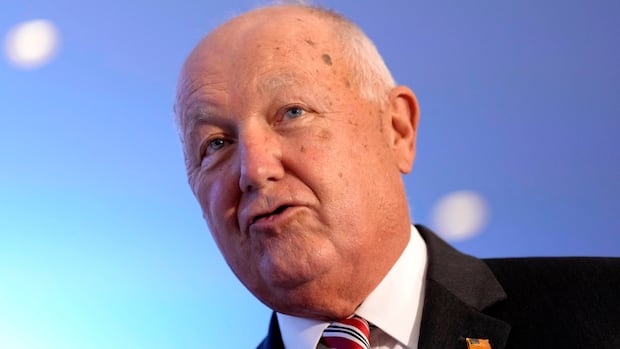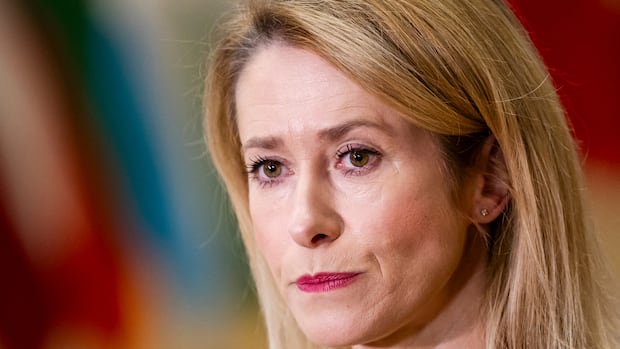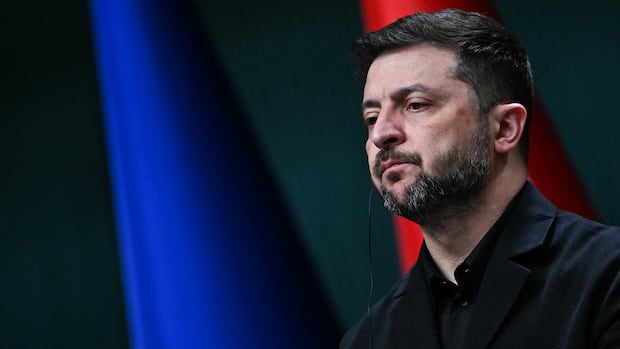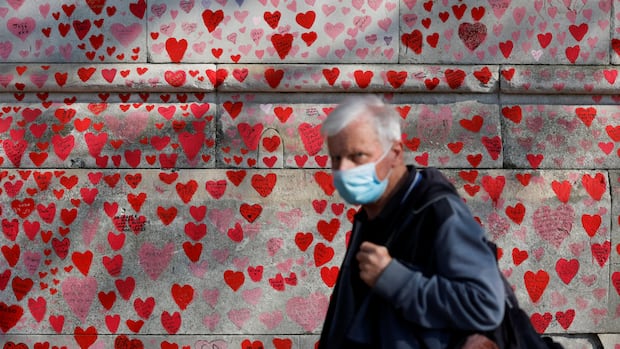Tough new asylum rules proposed by Britain’s Labour government have sparked debate not just in Britain, but within the governing party as critics accuse the leadership of donning a hard-right mantle to counter a rise in the polls by the populist anti-immigration party, Reform UK.
Before presenting the proposals at Westminster on Monday, Home Secretary Shabana Mahmood previewed them in a series of interviews where she said the U.K. has become a “golden ticket” for would-be refugees and that the immigration debate is “tearing the country apart.”
The solution, she later told Parliament, is to emulate Denmark and its strict policies of deterrence that she says have been responsible for a 40-year low in asylum claims there.
“If we fail to deal with this, it will draw more people down a path that starts in anger and ends in hatred,” she said in a nod to recent confrontations between protesters angry over asylum seekers housed in their communities and counter-demonstrators who would protect them.
Under the government’s new proposals, individuals granted asylum would no longer be entitled to automatic support from the state.
Their status would be temporary and re-evaluated every 2½ years. And they would only be eligible for permanent residence after 20 years, compared to five now.
 British Home Secretary Shabana Mahmood, left, appears on Sunday with Laura Kuenssberg at the BBC in London on Sunday. ( Jeff Overs/BBC/Reuters)
British Home Secretary Shabana Mahmood, left, appears on Sunday with Laura Kuenssberg at the BBC in London on Sunday. ( Jeff Overs/BBC/Reuters)Refugees could also have assets seized to support government costs.
There was a furore earlier in the week when Home Office minister Alex Norris told broadcasters that could include jewelry, although he ruled out wedding rings or items of sentimental value.
In her presentation to Parliament, Mahmoud said “we will require individuals to contribute towards the cost of their asylum support where they have some assets or income, but not enough to support themselves independently.”
Government accused of scapegoating migrantsThere was immediate pushback from critics, including Labour backbenchers accusing the government of “performative cruelty” and scapegoating migrants for political points.
“The rhetoric around these reforms encourages the same culture of divisiveness that sees racism and abuse growing in our communities,” said Labour MP Tony Vaughan in a social media post.
“The Denmark-style policies briefed in the last couple of days are dystopian,” said MP Nadia Whittome, responding to Mahmood in Parliament and accusing the government of “ripping up the rights and protections of people who have endured unimaginable trauma.”
“How can we be adopting such obviously cruel policies? Is the home secretary proud that the government have sunk to such depths that it is now being praised by Tommy Robinson?”
Robinson is a far-right activist accused of racism and co-founder of the now defunct English Defence League who has reportedly voiced support for the proposals.
Refugee charities say the proposals will make it more difficult for those granted asylum to win acceptance or integrate into local communities.
 Small boats and outboard motors used by migrants to cross the English Channel are stored at a Home Office facility on Wednesday in Dover, England. (Dan Kitwood/Getty Images)
Small boats and outboard motors used by migrants to cross the English Channel are stored at a Home Office facility on Wednesday in Dover, England. (Dan Kitwood/Getty Images)“They will make it far harder for people to establish themselves in their new communities,” said Nick Beales, head of campaigning with the Refugee and Migrant Forum of Essex and London.
“And it will make it far harder for people to establish themselves in their new communities and it will definitely harm social cohesion by making it very clear to these people that the government of the day does not welcome them here.”
The town of Epping in Essex, north of London, was the scene of heated demonstrations over the summer outside a hotel housing migrants after one of its residents was charged with sexual assault.
Looking back to BrexitAccording to the latest Ipsos poll, immigration has worked its way back up to the top of Britons’ list of concerns, beating out the economy and a struggling National Health Service.
“I think asylum seekers come here because they know they’re going to get given accommodation, money, you know, a good life without having to work for it,” Jannie Fenwick, a personal assistant, told Reuters earlier this week.
The focus now on immigration mirrors its place in the U.K.’s public consciousness about a decade ago.
WATCH | U.K. proposes new asylum rules:The U.K. government has proposed a major overhaul of its asylum rules, making it easier to deport people and quadruple the amount of time it takes to become a permanent resident.“The last time [concern over immigration] was this high in repeated months was actually in the pre-Brexit period and in the run-up to the Brexit vote in 2015 and early 2016,” said Peter Walsh, a senior researcher at Oxford University’s Migration Observatory.
Back then, “Take Back Control” was one of the slogans employed by the pro-Brexit camp, many of those wanting Britain to leave the European Union because they were unhappy with shared border policies they said didn’t work.
That slogan has been replaced in recent years by “Stop the Boats,” a mantra and election pledge introduced in the U.K. by former Conservative prime minister Rishi Sunak in the dying days of his premiership in 2023.
‘A very divisive issue’The phrase is often seen on placards bouncing above the crowds at anti-immigration rallies.
The boats in question are those used by smugglers to ferry migrants across the channel from France to England on risky journeys.
“People will disagree over the use of the word ‘crisis,’ but there’s no doubt that small boat crossings are a very divisive issue and are probably the largest part of the explanation for immigration actually rising to the top of the U.K.’s political agenda,” said Walsh.
“Successive governments in the U.K. have really focused on the idea of control as being central to immigration policy,” he said.
“And this is very clear evidence of a lack of control by definition. These are unauthorized arrivals, and [there is] a quality of spectacle about it.”
 Police officers and protesters scuffle outside the council offices in Epping, England, after a march from the Bell Hotel, which houses asylum seekers, on Aug. 31. (Chris J Ratcliffe/AFP/Getty Images)
Police officers and protesters scuffle outside the council offices in Epping, England, after a march from the Bell Hotel, which houses asylum seekers, on Aug. 31. (Chris J Ratcliffe/AFP/Getty Images)Roughly 40,000 asylum claimants arrived in the U.K. this way in the year ending in June, according to U.K. government statistics.
That compares to roughly the same number claiming asylum after having arrived on study, work or visitor visas.
Farage back and leading Reform UKRegular immigration numbers are in the hundreds of thousands.
Adding to the febrile nature of the debate — and the sense of division — is the fact that Reform UK is led by Nigel Farage, the same man who helped usher Britain out of the European Union as leader of the pro-Brexit United Kingdom Independence Party (UKIP).
That’s the party whose voters some analysts say Labour is trying to pander to in adopting tougher asylum laws.
There are only five Reform MPs compared to 405 Labour MPs, but Reform is enjoying a substantial lead in the opinion polls while Keir Starmer’s Labour government has had a difficult 16 months in power.
“One does wonder whether the Labour government are actually banking on taking the wind out of the Reform Party’s sails,” said Walsh. “That’s speculative, but perhaps not an unreasonable inference to draw.”
 Nigel Farage, leader of Reform UK, delivers a speech in London, England, on Nov. 3. (Hiba Kola/Reuters)
Nigel Farage, leader of Reform UK, delivers a speech in London, England, on Nov. 3. (Hiba Kola/Reuters)Walsh says Denmark’s tougher asylum laws helped Prime Minister Mette Frederiksen, a Social Democrat in power since 2019, stave off challenges from the far-right Danish People’s party.
But many Labour supporters — and several MPs — say the party risks alienating its base with these new measures.
“In response to a far-right challenge, this government is proposing to keep victims of torture or persecution in a perpetual limbo by only offering them temporary sanctuary,” MP Stella Creasy wrote in an editorial for the Guardian newspaper at the start of the week.
Farage’s reaction, meanwhile, was to quip that the home secretary’s proposals made it sound like she was auditioning to join Reform.











